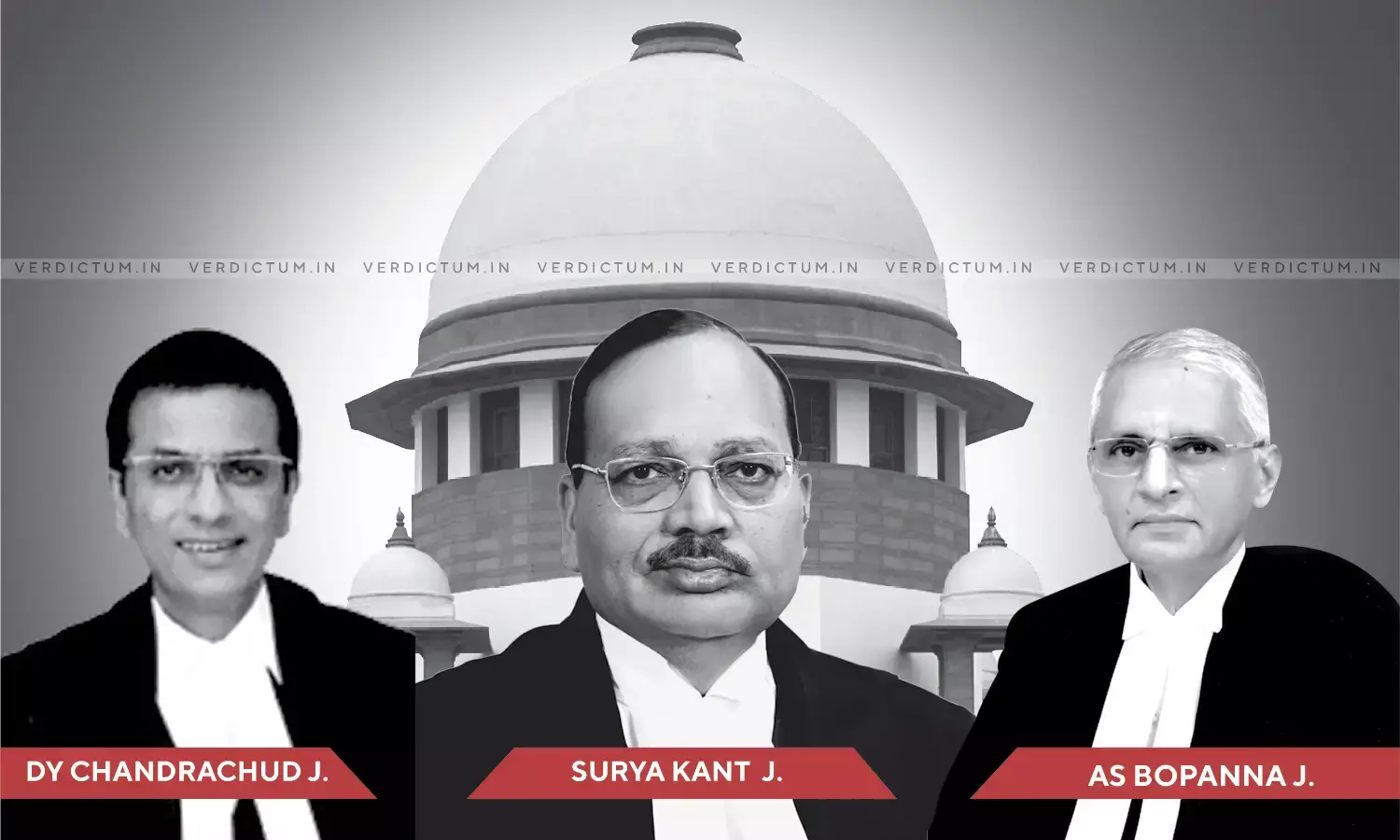Denying Unmarried Woman Right To Safe Abortion Violates Her Personal Autonomy - SC Allows Termination Of 24-Week-Old Pregnancy

While holding that a woman's right to reproductive choice is an inseparable part of her personal liberty, the Supreme Court allowed a woman to medically terminate her 24-week-old pregnancy subject to Medical Board's opinion that the fetus can be aborted without danger to her life.
The Bench of Justice Dhananjaya Y Chandrachud, Justice Surya Kant and Justice AS Bopanna observed that "Denying an unmarried woman the right to a safe abortion violates her personal autonomy and freedom".
Counsel Dr. Amit Mishra appeared for the Petitioner while ASG Aishwarya Bhati along with AOR GS Makker appeared for Respondent No. 2 before the Apex Court.
In this case the petitioner had filed a writ petition before Delhi High Court seeking permission to medically terminate her pregnancy as her relationship had failed. The Delhi High Court rejected her plea stating that since the petitioner is an unmarried woman whose pregnancy arose out of a consensual relationship, her case was "clearly not covered" by any of the clauses of Rule 3B of Medical Termination of Pregnancy (MTP) Rules 2003.
Rule 3B provides for the categories of women who are eligible for termination of pregnancy up to twenty-four weeks.
Feeling aggrieved by the Delhi High Court's verdict the woman approached Supreme Court.
The Court considered the MTP Act and held thus "The fundamental principle of statutory interpretation is that the words of a statute must be read in their entire context and in their grammatical and ordinary sense harmoniously with the scheme of the Act and the intent of the legislature. Parliament by amending the MTP Act through Act 8 of 2021 intended to include unmarried women and single women within the ambit of the Act. This is evident from the replacement of the word 'husband' with 'partner' in Explanation I of Section 3(2) of the Act."
The Court further observed that "The statute has recognized the reproductive choice of a woman and her bodily integrity and autonomy. Both these rights embody the notion that a choice must inhere in a woman on whether or not to bear a child. In recognizing the right the legislature has not intended to make a distinction between a married and unmarried woman, in her ability to make a decision on whether or not to bear the child."
The Court noted that allowing the petitioner to terminate her pregnancy, on a proper interpretation of the statute, prima facie, fell within the ambit of the statute and the petitioner should not be denied the benefit on the ground that she is an unmarried woman.
Therefore the Court requested the Director of the All India Institute of Medical Sciences, Delhi to constitute a Medical Board and held that if the medical board concludes that the fetus can be aborted without danger to the life of the petitioner, abortion shall be carried out.
However the Court directed to obtain the woman's written consent before proceeding with the abortion.
Click here to read/download the Judgment

